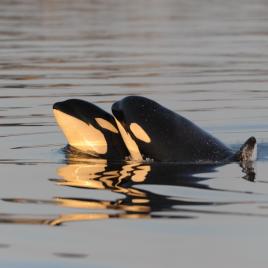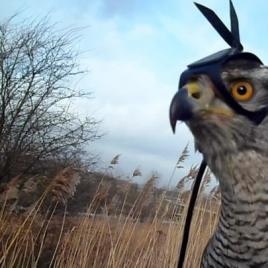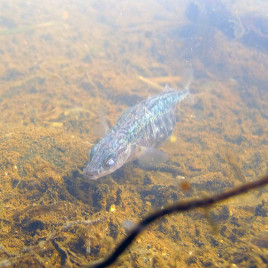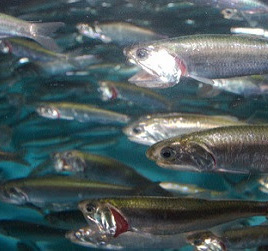Most invertebrates can detect polarization of light in addition to color and intensity, which helps with target detection, orientation and communication. But a recent study found evidence of the first vertebrate that possesses polarization vision: the northern anchovy. Optic nerve recordings from anchovies have shown that the fish’s eyes show retinal segregation for independent colour […]
Tag: vision

Why the internet couldn’t agree on the colours of “The Dress”
The image of a simple dress on a hanger went viral in 2015, with thousands of internet users trying to figure out whether the dress was black with blue stripes or white with gold stripes. Once the owner came forward to settle the question (it was confirmed by the retailer as blue and black), many […]

What allows killer whales to see in underwater darkness? 
While humans aren’t great at night vision, most of us can make out various objects in dim light thanks to a special light-sensitive protein rhodopsin. This chemical plays a much bigger role in the visual systems of ocean dwellers like whales, who travel through places where little light penetrates the depths of the water. A new study […]

Hawks and humans could be using similar visual cues during search
While humans may not have the hawk’s amazing eyesight, a new study suggests that both hawks and humans use similar visual techniques for search. To better understand the scanning techniques of a hawk, researchers mounted a camera on the head of a Northern Goshawk. Combined with footage of hunting raptors, gathered from the ground, authors […]

Eyesight sharpened in the blink of an eye 
The next time you reach for your reading glasses, try this weird trick instead: staring at a flickering display. Researchers at Western University found that staring at a series of flickering images can help temporarily sharpen vision. This is due to the decreased activity from the visual pathway responsible for carrying less detailed visual cues […]

Rapid adaptive evolution of colour vision in threespine stickleback 
Colour vision can evolve to be better adapted to a particular environment in as little as 12,000 years. Authors of a new study out of UBC found that different populations of the threespine stickleback, a small fish that is able to live in fresh- or saltwater, have evolved to see different colours better depending on […]

